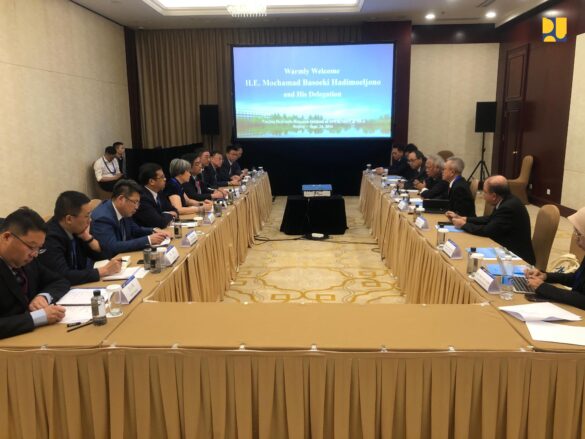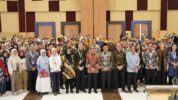China’s NHRI Expresses Interest in Indonesian Coastal Dike Project
JAKARTA, RAKYAT NEWS – The Indonesian Ministry of Public Works and Housing (PUPR) has announced that the Nanjing Hydraulic Research Institute (NHRI) from China is interested in participating in the construction of coastal dikes in the country.
Endra S. Atmawidjaja, the ministry’s spokesperson and expert advisor on technology, industry, and environment, shared that while NHRI has expressed interest, the specifics of their engagement remain to be seen.
“They have shown interest, but whether they will actively engage is still uncertain. However, this interest is expected to lead to further discussions,” he stated.
In addition to NHRI, two other countries—South Korea and the Netherlands—have also indicated interest in the National Capital Integrated Coastal Development (NCICD) project. According to Endra, both nations have previously conducted studies relevant to the NCICD.
“Currently, South Korea and the Netherlands are deepening their analysis to explore how they can get involved or even initiate construction efforts. Their interest is at the preliminary stage, as they evaluate potential investment opportunities,” he added.
The NHRI is recognized as a leading institution in China, renowned for its expertise in constructing major dams and coastal defenses.
“NHRI is a robust organization that has contributed to significant water management projects in China,” Endra remarked.
During a recent working visit to China, Indonesian Minister of PUPR Basuki Hadimuljono met with NHRI representatives to explore collaboration opportunities for developing breakwaters and various types of coastal dikes suitable for Indonesia.
This meeting is expected to be followed by a visit from an NHRI team to Indonesia in the near future. The team plans to review existing data and basic design studies prepared by experts from South Korea, the Netherlands, and the Indonesian Ministry of PUPR.
Minister Basuki emphasized the importance of creating physical models of coastal dikes, utilizing facilities such as the Water Resources Laboratory in Bandung and the Northern Bali Coastal Laboratory. This initiative aims to facilitate knowledge transfer from China to Indonesia.
Discussions around financing for these projects are underway, with plans to adopt a loan scheme for the necessary funding. This approach reflects the collaborative spirit of the potential partnership between the countries.
The interest from NHRI and other countries highlights the growing international focus on addressing coastal vulnerabilities, particularly in the face of climate change. Indonesia, with its extensive coastline, is particularly susceptible to rising sea levels and extreme weather events.
As the discussions progress, the Indonesian government is keen on leveraging global expertise to enhance its coastal infrastructure. This collaborative effort is seen as crucial for protecting urban areas from flooding and ensuring sustainable development along the coast.
The outcomes of these collaborations could set a precedent for future international partnerships in Indonesia’s infrastructure development. Stakeholders are optimistic that such cooperation will bring about innovative solutions to longstanding environmental challenges.
The Indonesian government is actively pursuing international collaboration for coastal development projects, and the interest shown by NHRI is a significant step toward enhancing the country’s coastal resilience. (Uki Ruknuddin)



























Tinggalkan Balasan